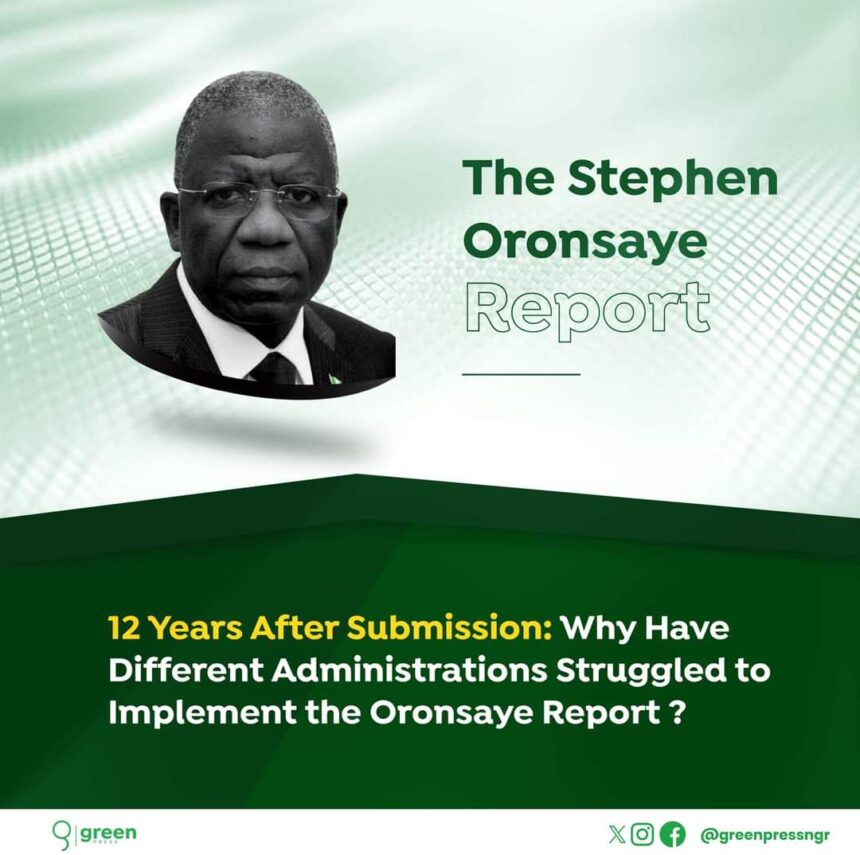The resurgence of the Oronsaye Report in Nigeria’s political discourse has reignited debates surrounding bureaucratic restructuring and governance efficiency. Initiated in 2011 under the administration of former President Goodluck Jonathan, the report, chaired by Stephen Oronsaye, aimed to streamline federal government agencies and parastatals. However, its journey from conception to implementation has been fraught with political complexities and professional technicalities.
At the heart of the matter lies the delicate balance between political influence and the imperative for reform. The report’s comprehensive recommendations seem likely to be faced with resistance, particularly within the political elite circles, where the preservation of redundant agencies serves as a bargaining chip for maintaining the status quo and safeguarding political appointments. This resistance underscores the entrenched interests within the National Assembly, where lawmakers wield significant power in shaping bureaucratic structures.
President Bola Tinubu’s administration is recommitting to implement the Oronsaye Report, targeting enhanced government efficiency and reduced governance costs. An eight-man committee with a 12-week deadline will oversee legislative amendments and administrative restructuring. Key recommendations include merging the National Salaries, Income and Wages Commission with the Revenue Mobilisation and Fiscal Commission, and consolidating the National Human Rights Commission with the Public Complaints Commission. Furthermore, agencies like the Pension Transitional Arrangement Directorate faces scrapping, while others such as NEMA and the National Commission for Refugees will merge.
Moreover, the implementation of the report necessitates legislative amendments, highlighting the National Assembly’s pivotal role in the reform process.
Recommendations such as merging agencies and reallocating responsibilities often require constitutional changes, further entrenching the involvement of lawmakers in driving reform initiatives forward. Yet, the reluctance to enact these changes reflects a transactional approach to governance, where political expediency sometimes takes precedence over the public interest.
One of the most significant ramifications of the Oronsaye Report’s implementation is the potential loss of political appointments and jobs. The merging and scrapping of agencies inevitably translate to a restructuring of personnel, raising concerns about unemployment and political patronage. This aspect further underscores the intertwined nature of political influence and bureaucratic reform, where vested interests confronts governance imperatives.
Despite these challenges, recent developments signal a renewed commitment to reform. President Bola Tinubu’s directive to implement the Oronsaye Report has resurrected the enduring struggle between governance efficiency and political chicaneries. However, the road ahead remains fraught with obstacles, including entrenched interests and resistance to change within the political establishment.
As Nigeria grapples with the imperative to enhance governance efficiency, curb bureaucratic redundancies, and cut running costs, the role of political actors, especially within the National Assembly, will continue to shape the trajectory of reform initiatives. Ultimately, the nation’s ability to navigate these challenges will determine its capacity to realize its full administrative potential and foster sustainable development in the years to come.
Credit: Greenpress Nigeria


